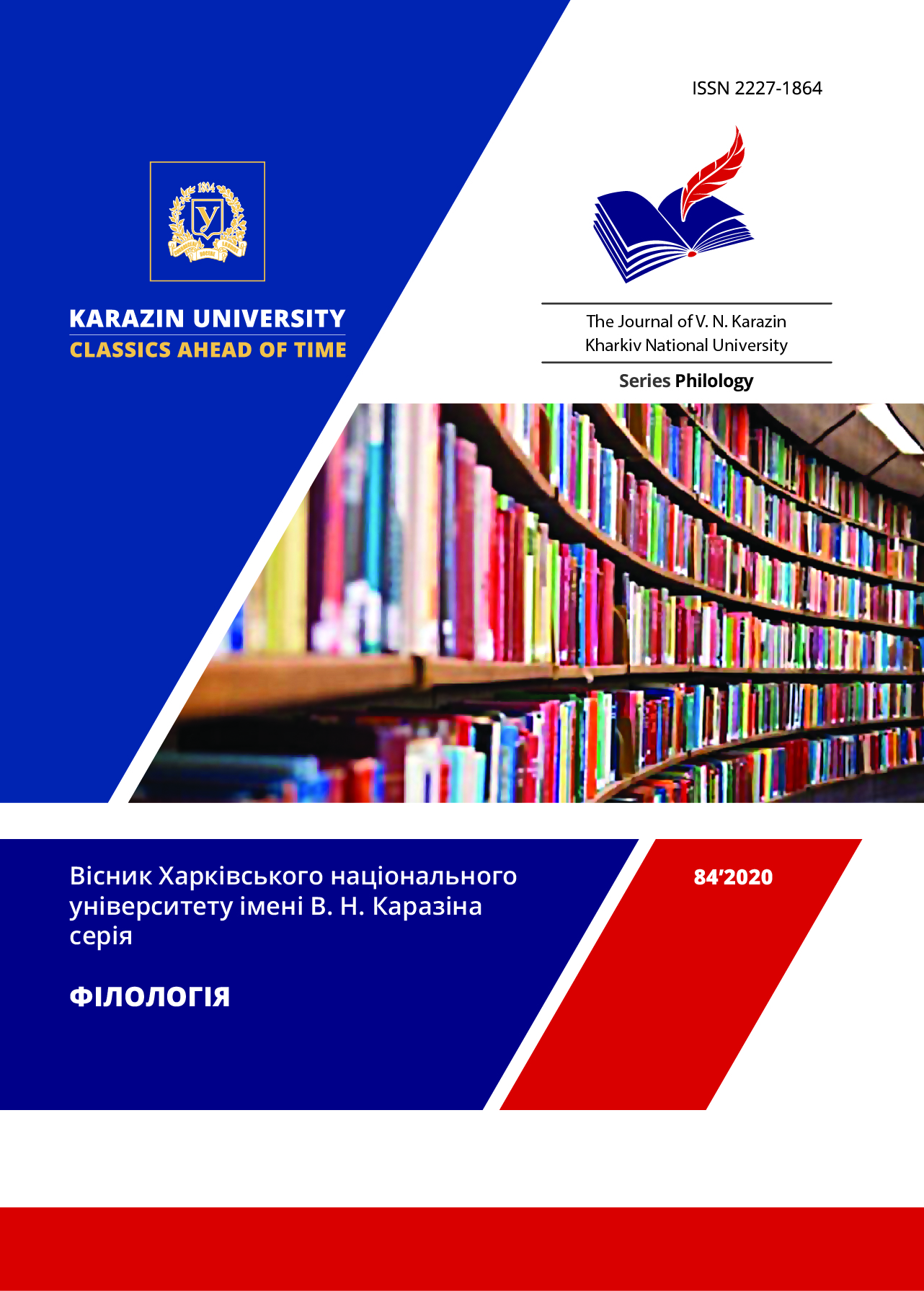Riflemen criticism in the «Literaturno-Naukovyi Vistnyk» – «Vistnyk» («Literary-Scientific Bulletin» – «Bulletin») of the interwar period
Abstract
The article analyzes the literary and critical speeches of the representatives of the riflemen generation – O. Babii, L. Lutsiv, Yu. Shkrumeliak, dedicated to the creativity of the natives from the riflemen cohort –- V. Bobinskyi, M. Holubets, M. Matiiv-Melnyk, V. Atamanyuk, V. Uhryn-Bezhrishnyi, O. Babii, R. Kupchynskyi, O. Haidukevych, M. Yevshan, the authors not only promote the work of their brothers and actualize educational works on the subject of riflemen heroics, but also act in defense of riflemen values as well as of each other’s, creating even here the expressive choices of riflemen fraternity.
In the portraiture of the siblings, a key is the military-generational approach, which firstly generalizes the warrior’s posture, and then the writer’s one. Accordingly, it emphasized the need to create literature that would focus the moods and feelings of a riflemen army at different stages of its struggle - in the legion, UGA. The appearance of riflemen’s literature phenomenon, from a military source, a militaristic spirit and a rhythm of the era, is positively noted. In such writing, riflemen criticism expresses the consciousness of the whole paramilitary generation of Galician youth, who has renounced their everyday happiness in the name of higher national goals. Riflemen criticism reveals the need for its creators to continue in the new historical and political conditions of war between the generational intentions during the liberation war of 1914–1921 – by means of literature and nationally conscious action. Because of this, the «Literary-Scientific Bulletin» – «Bulletin» of D. Dontsov received significant support from the riflemen forces, and they mostly supported the nationalist ideological-literary direction, and movements of the national direction in politics. The literary-critical discourse of the «Vistnyk» («Bulletin») represents the expressive image of friendship and brotherhood in the literary-critical mutual reception that runs across the boundaries of literary societies. Riflemen criticism is a device of the generative solidarity of the reviewer and the reviewed in the defense of riflemen values.
Downloads
References
Bourdieu, P. (2000). Pole literatury. Novoye literaturnoe obozreniye, 45, 22–87. Available at: http://bourdieu.name/content/burde-pole-literatury
Hnatiuk, M. (1995) Krytyk, shcho pominiav pero na zbroiu (literaturno-krytychna diialnist Mykoly Yevshana (Fediushky). Lviv. 94 p.
Holubets, M. (1934). Hei, vydno selo... Lviv : Ukrainska biblioteka. 125 p.
Holubets, M. (1933). Vchorashnia liegenda. Z peredmovoiu Avtora. Lviv: Ukrainska biblioteka. 127 p.
Zhyvotko, A. (1946). Istoriia Ukrainskoi presy. Rehensburh: Ukrainskyi Tekhnichnyi Silskohopodarskyi Instytut. 334 p.
Ilnytskyi, M. (1995) Vid «Molodoi muzy» do «Prazkoi shkoly». Lviv: Instytut Ukrainoznavstva NAN Ukrainy, Lvivskyi oblasnyi metodychnyi instytut osvity. 318 p.
Dontsov, D., ed. (1922-1939). Literaturno-Naukovyi Vistnyk (1922–1932)/ Vistnyk (1933–1939). Lviv.
Lutsiv, L. (1981). Literatura i zhyttia. Dzherzi syti, Niu York. 480 p.
Oliinyk-Rakhmannyi, R. (1999) Literaturno-ideolohichni napriamky v Zakhidnii Ukraini (1919–1939 roky). K.: Chetverta khvylia. 240 p.
Utrisko, O. (2012) Prysutnist Olesia Babiia u «Literaturno-naukovomu Vistnyku» – «Vistnyku» Dmytra Dontsova: bibliohrafichnyi ta biohrafichnyi aspekty. Visnykivstvo: literaturna tradytsiia ta idei. Naukovyi zbirnyk, 2, 277–287.




